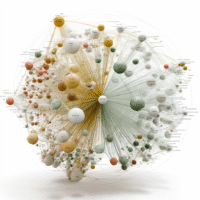Vladimir Dyachkov PhD
-
Baidu’s AI Search Paradigm: Revolutionizing Information Retrieval with Multi-Agent Framework
Understanding the Target Audience for Baidu’s AI Search Paradigm The research conducted by Baidu targets AI professionals, business managers, and technology decision-makers. These individuals are often responsible for the implementation and optimization of information retrieval systems. They face challenges with existing search technologies, particularly regarding their limitations in handling complex queries and the inefficiencies of […] ➡️➡️➡️
-
OMEGA: Revolutionizing Mathematical Reasoning Benchmarks for LLMs
Understanding OMEGA: A New Benchmark for AI in Mathematical Reasoning Who Benefits from OMEGA? The OMEGA benchmark is tailored for a diverse audience, including researchers, data scientists, AI practitioners, and business leaders. These professionals are eager to enhance the capabilities of large language models (LLMs) in mathematical reasoning. Their common challenges include navigating the limitations […] ➡️➡️➡️
-
Build Advanced Multi-Agent AI Workflows with AutoGen and Semantic Kernel
Understanding the Target Audience for Advanced Multi-Agent AI Workflows The audience for this tutorial primarily includes business professionals, data scientists, and AI developers. These individuals are often tasked with implementing AI solutions in their organizations and are looking for ways to enhance efficiency and productivity through automation and advanced analytical capabilities. Pain Points Integrating multiple […] ➡️➡️➡️
-
TabArena: Revolutionizing Benchmarking for Tabular Machine Learning
Understanding the Importance of Benchmarking in Tabular Machine Learning Machine learning (ML) applied to tabular data is critical across various sectors, including finance, healthcare, and marketing. These structured datasets, resembling spreadsheets, allow models to learn and identify patterns. With typically high stakes involved, accuracy and interpretability are paramount. Popular ML techniques such as gradient-boosted trees […] ➡️➡️➡️
-
LongWriter-Zero: Revolutionizing Ultra-Long Text Generation with Reinforcement Learning
Introduction to Ultra-Long Text Generation Challenges Generating ultra-long texts is essential for various domains such as storytelling, legal documentation, and educational content. However, achieving coherence and quality in long outputs poses significant challenges for existing large language models (LLMs). As text length increases, common issues arise, including incoherence, topic drift, repetition, and poor structure. Traditional […] ➡️➡️➡️
-
MDM-Prime: Revolutionizing Masked Diffusion Models for Enhanced AI Efficiency
Understanding MDM-Prime MDM-Prime represents a significant leap in the realm of generative models, particularly for those involved in artificial intelligence research and application. This framework is designed to address common challenges faced by AI researchers, data scientists, and business managers who seek to implement advanced machine learning techniques effectively. Identifying the Target Audience The primary […] ➡️➡️➡️
-
“Enhancing Robotic Adaptability: DSRL’s Latent-Space Reinforcement Learning Breakthrough”
Robotic control systems have come a long way, especially with the rise of data-driven learning methods that replace traditional programming. Instead of relying solely on explicit instructions, today’s robots learn by observing and mimicking human actions. This behavioral cloning approach works well in structured environments, but when it comes to the real world, challenges arise. […] ➡️➡️➡️
-
University of Michigan Unveils G-ACT: A Scalable Solution to Mitigate Programming Language Bias in LLMs
Understanding the Challenges of Code Generation with LLMs Large language models (LLMs) have transformed how we interact with technology, particularly in generating code for scientific applications. However, the reliance on these models for programming languages like C++ and CUDA presents unique challenges. These languages are often underrepresented in training datasets, leading to errors in the […] ➡️➡️➡️
-
Build Efficient Data Analysis Workflows with Lilac: A Comprehensive Coding Guide for Data Professionals
Understanding the Target Audience The target audience for “A Coding Guide to Build a Functional Data Analysis Workflow Using Lilac” consists mainly of data professionals, data analysts, and business intelligence developers. These individuals work across various industries, including finance, healthcare, technology, and marketing, where data-driven decision-making is crucial. Pain Points Inefficient data workflows that are […] ➡️➡️➡️
-
“Unlocking Dexterous Robotics: Introducing Dex1B, a Billion-Scale Dataset for Advanced Hand Manipulation”
Understanding the Dex1B Dataset The Dex1B dataset represents a breakthrough in the field of robotics, particularly for researchers and industry professionals focused on dexterous hand manipulation. These individuals often face challenges, such as data scarcity and quality, when training models for complex hand movements. The Dex1B dataset aims to address these pain points by providing […] ➡️➡️➡️
-
Build Custom AI Tools: Enhance Your AI Agents with Machine Learning and Statistical Analysis
Building Custom AI Tools for Data Analysis Creating custom tools for AI agents is crucial for enhancing their analytical capabilities. This article explores how to build a powerful data analysis tool using Python, specifically designed for integration with AI agents powered by LangChain. By establishing a structured input schema and implementing various analytical functions, this […] ➡️➡️➡️
-
Revolutionizing Rare Disease Diagnosis: DeepRare’s AI-Powered Solution for Clinicians
Understanding the Target Audience DeepRare is designed with a specific audience in mind: healthcare professionals, particularly those specializing in rare diseases, along with researchers in medical diagnostics and bioinformatics. These individuals often face significant challenges in their work, including: Lengthy diagnostic processes that can take over five years. Frequent misdiagnoses that lead to unnecessary invasive […] ➡️➡️➡️
-
Tencent Open Sources Hunyuan-A13B: Revolutionizing AI with a 13B Parameter MoE Model for Researchers and Developers
Understanding the Target Audience for Tencent’s Hunyuan-A13B The Tencent Hunyuan-A13B model is designed with a specific audience in mind: AI researchers, data scientists, and business managers in tech-driven industries. These individuals are often tasked with developing AI solutions, optimizing workflows, and enhancing decision-making processes through cutting-edge technologies. Pain Points Need for efficient AI models that […] ➡️➡️➡️
-
Getting Started with Gemini CLI: A Developer’s Guide to Boosting Productivity
Understanding the Target Audience The Gemini Command Line Interface (CLI) is tailored for developers, software engineers, and technical project managers. These users generally have a solid grasp of coding and command-line tools. Their main challenges often include managing extensive codebases, automating repetitive tasks, and integrating various tools into their workflows. They aim to boost productivity, […] ➡️➡️➡️
-
Unlock Creative Potential with Alibaba’s Qwen-VLo: The Future of Multimodal Content Generation
Understanding the Target Audience for Qwen-VLo The target audience for Alibaba’s Qwen-VLo includes designers, marketers, content creators, and educators. These professionals often struggle with the demands of creating high-quality visual content efficiently. Their main challenges revolve around time constraints, the complexity of traditional design tools, and the need for multilingual support in their projects. Audience […] ➡️➡️➡️
-
Getting Started with MLFlow: A Practical Guide for Evaluating Large Language Models
Understanding MLflow for Evaluating Large Language Models MLflow has emerged as a robust tool for managing the machine learning lifecycle, and its recent enhancements now allow for the evaluation of Large Language Models (LLMs). This guide will walk you through the process of using MLflow to evaluate the performance of Google’s Gemini model on factual […] ➡️➡️➡️
-
Unbabel TOWER+: Revolutionizing High-Fidelity Translation in Multilingual AI Models
Understanding the Target Audience The introduction of TOWER+ has significant implications for various stakeholders, including business leaders, AI researchers, and developers focused on machine translation and natural language processing. These groups face common challenges, such as the need for high-quality translations that preserve context and adhere to specific formatting requirements. Their goal is to enhance […] ➡️➡️➡️
-
Polaris Models: Revolutionizing Scalable Reinforcement Learning for AI Reasoning
Understanding the Target Audience The development of Polaris-4B and Polaris-7B primarily caters to AI researchers, machine learning engineers, and business leaders who are keen on scalable reasoning models. These groups are often on the lookout for ways to enhance AI capabilities across various sectors, including finance, education, and technology. Pain Points in AI Model Development […] ➡️➡️➡️
-
Build a Multi-Tool AI Agent with Nebius and Llama 3 for Developers and Researchers
Building a Powerful Multi-Tool AI Agent with Nebius This tutorial explores the creation of an advanced AI agent using Nebius, specifically leveraging components like ChatNebius, NebiusEmbeddings, and NebiusRetriever. By utilizing the Llama-3.3-70B-Instruct-fast model, this agent aims to generate high-quality responses and perform a variety of tasks, from Wikipedia searches to mathematical computations. The integration of […] ➡️➡️➡️
-
Mercury: Revolutionizing Code Generation with Ultra-Fast Diffusion-Based Language Models
Understanding the Target Audience for Mercury The audience for Inception Labs’ Mercury primarily consists of software developers, data scientists, and technology managers. These professionals are on the lookout for efficient coding solutions to tackle their day-to-day challenges. They often encounter limitations with traditional autoregressive models, particularly regarding latency and inefficiency in real-time coding environments. Key […] ➡️➡️➡️


















